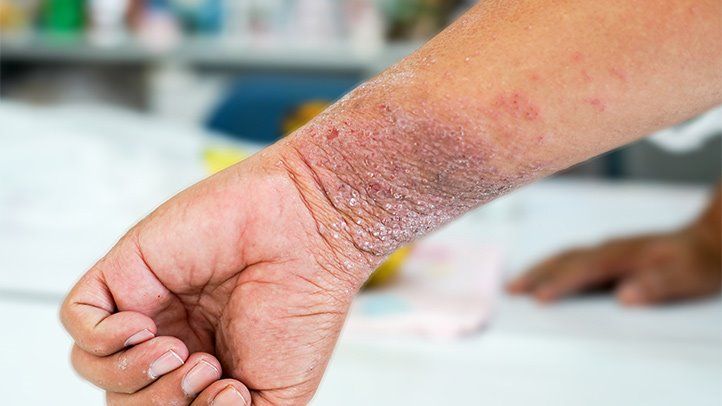Eczema is a group of conditions that affect the skin, irritating it and often making it appear red. When people refer to eczema they normally mean atopic dermatitis which is just one type of eczema, though it is the most common form. There are many types of eczema, and we’ll talk about some of them in detail here.
Eczema most often affects children, whom grow out of it quite early in life, around the age of 10. However, some people may have symptoms appearing intermittently throughout their lives. Eczema is not contagious, so there is no risk of contracting it from or giving it to another person. However, there is also no cure for the conditions, though careful treatment can help manage symptoms.
If you have symptoms of eczema that you find difficult to deal with, you should consider consulting a professional on how best to manage your symptoms. We recommend these Dermatologist in Lahore, for those of you that are currently in the city.
Table of Contents
Types of Eczema:
Atopic Dermatitis:
As mentioned above, this is the most common form of eczema, and usually starts during childhood, getting milder as one ages. The patches of inflamed skin normally appear on the elbows and knees, potentially making the skin darker or lighter, as well as thicker. The condition may also cause pus-filled bumps on the skin.
This condition is likely caused by genetic inheritance, dry skin, a compromised immune system, or environmental triggers like allergens.
Contact Dermatitis:
This condition is aggravated by contact with certain substances or allergens. There are two main kinds: allergic contact and irritant contact. The former involves an immune system response, while the latter involves chemicals that are known irritants. Both are characterised by itchy burning skin and the appearance of hives. Pus-filled bumps may also appear, and rash-affected skin may become scaly and leathery.
The most common causes of this condition include bleach, detergent, latex, paint and tobacco smoke.
Dyshidrotic Dermatitis:
This condition is much more prevalent in women than in men. It is characterised by the formation of blisters on the hands and feet. Causes include ineffective drying of hands and feet, allergies, stress and exposure to nickel and chromium salts.
Hand Eczema:
As the name suggests, this type only affects the hands, and is likely caused by irritants associated with haircare and laundry work. The symptoms include itchy dry skin that gets inflamed, and the formation of blisters.
Nummular Eczema:
The name is derived from the Latin word meaning coin. This was given to the condition because of the coin-shaped spots that are characteristic of the disease. These spots are extremely itchy and may become scaly.
This condition can be caused by a bite from an insect, dry skin and even an allergic reaction. The likelihood of having this type is higher if you have another kind of eczema.
Treatment:
As mentioned earlier, there is no known cure for eczema, but there are options available that can help you mitigate symptoms. These options include antihistamines and corticosteroids to help with itchiness and inflammation, steroids to reduce swelling, and antibiotics in case the condition is accompanied by an infection.
If the condition is severe, intense treatments like UV light treatment and calcineurin inhibitors may be opted for, the former for healing rashes and the latter to reduce the immune response.If you think you could benefit from any of these treatments, we suggest you consult a doctor on which option is most appropriate for you. We recommend these Dermatologist in Karachi, if you require one in that city.












